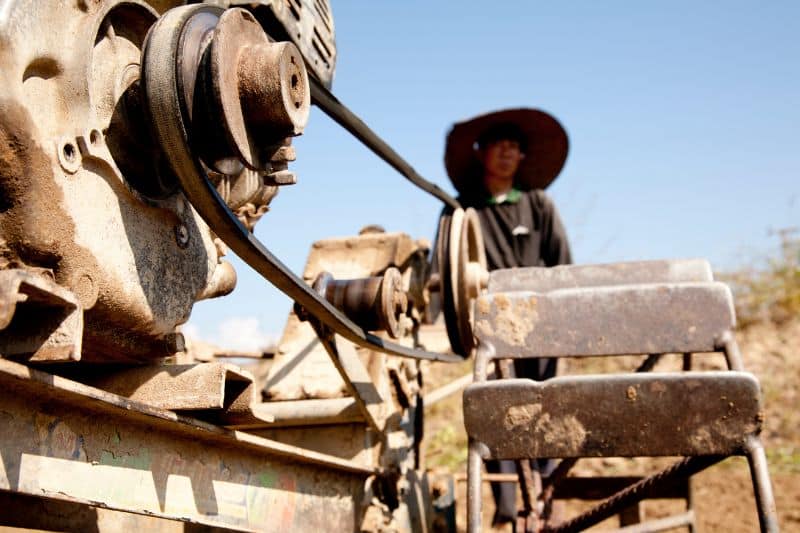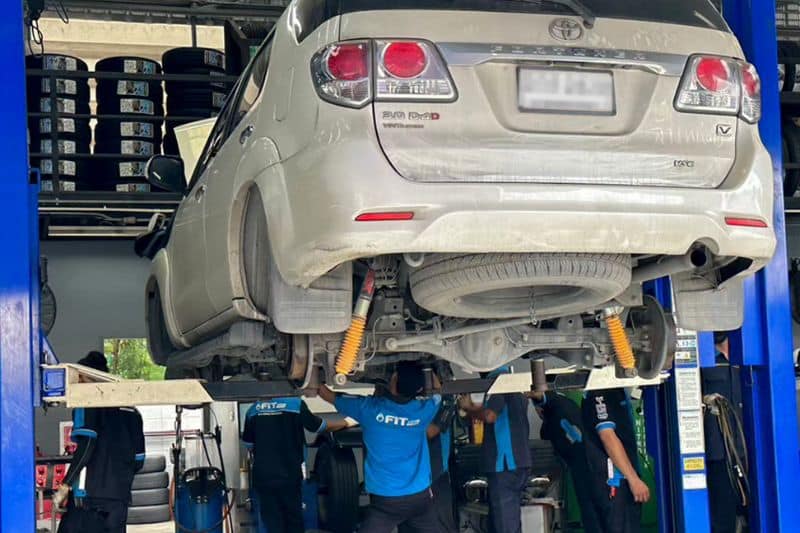With a vibrant economy that has been steadily growing over the past few years, Thailand holds great potential for economic growth.
Thailand’s economy has been on a steady growth trajectory over the past few years, despite challenges posed by the Covid-19 pandemic. In 2023, the country’s economy is projected to expand by 3.9%, with several key industries playing a crucial role in driving this growth.
The country’s diverse portfolio is driven by several industries, including tourism, manufacturing, and agriculture. Read on for the five key industries expected to contribute significantly to economic growth in Thailand.

Manufacturing
Thailand’s manufacturing industry has been a key driver of the country’s economy for many years, and it continues to play a crucial role in the country’s development to date. The industry has grown significantly over the past decade and is now one of the most advanced in Southeast Asia.
One of the reasons for the success of Thailand’s manufacturing industry is its strategic location. The country is located at the centre of Southeast Asia, making it an ideal location for companies looking to expand their operations in the region. In addition, the country has a large pool of skilled labour, which is essential for the success of any manufacturing industry.
Another factor contributing to Thailand’s success is the government’s investment in infrastructure. The government has invested heavily in building roads, ports, and airports, which has made it easier for manufacturers to transport goods to other parts of the country and beyond. This investment has also made it easier for foreign companies to set up operations in Thailand, which has helped to drive the growth of the manufacturing industry.
A wide range of products are produced locally, with some of the country’s key sectors include electronics, automotive, and food processing. Its electronics sector, in particular, has been snowballing in recent years, driven by demand for consumer electronics products such as smartphones and tablets.
Amidst this industrial growth, innovative startups have emerged to address various challenges. One such startup, Moreloop, is dedicated to maximising the value of surplus fabrics and minimising waste in the fashion industry. Moreloop operates as a one-stop service solution, offering both an online marketplace to sell surplus fabrics and a commitment to upcycling. By transforming textile waste into new and unique products, Moreloop contributes to the circular economy, promoting sustainability and ethical practices in the fashion industry.

Exports
Exports have played a key role in supporting the Thailand’s economy over several decades, and it continues to play a vital role in shaping the nation’s economic landscape today. In recent years, the country has emerged as one of the world’s top exporters of various products, including electronics, automotive parts, processed foods, and textiles.
Thailand’s export industry has benefitted from several factors, including a skilled workforce, a robust manufacturing base, and favourable government policies encouraging foreign investment. It has also established several free trade agreements with other nations, which has helped to expand its export markets and create new opportunities for growth.
Another factor driving the country’s export industry is its growing focus on sustainable and environmentally friendly manufacturing practices. Thai manufacturers are increasingly adopting eco-friendly production methods and incorporating renewable energy sources into their operations, which is helping to boost the country’s reputation as a responsible and sustainable supplier of goods.
In line with Thailand’s expanding export industry, startups like Flash Express have gained prominence. Flash Express, founded in 2017, has quickly become a leading player in the country’s logistics and e-commerce fulfilment sector. Leveraging advanced technology and an efficient last-mile delivery network, Flash Express has contributed to the seamless distribution of goods, aiding the growth of Thailand’s export economy by ensuring timely and reliable deliveries.

Tourism
For many years, the economy of Thailand has relied heavily on its tourism sector to support growth. The industry has faced challenges in recent years due to political instability, natural disasters, and the Covid-19 pandemic. However, the local government’s efforts to boost the sector through various measures have shown promising results.
One of the factors contributing to the growth of the tourism industry is Thailand’s popularity as a travel destination. The country is known for its rich culture, beautiful beaches, ancient temples, and delicious cuisine. The government’s efforts to promote tourism through marketing campaigns and infrastructure development have also been successful.
Thailand’s government has implemented several measures to boost the tourism industry, including visa waivers and reducing the fees for visa-on-arrival. The government has also invested heavily in infrastructure development, such as upgrading airports and roads, to make travel to and within the country more accessible and convenient for tourists.
Adding to the evolving landscape of Thailand’s travel industry, local startup, Really Cool Airlines, is poised to make a distinctive mark. Sporting the slogan “We Fly the Future,” the airline’s unique business model blends elements of luxury and budget travel, while defining itself as a “full-service lifestyle carrier.”
Combining the affordability of low-cost carriers with the safety, customer service, and product standards akin to luxury airlines, Really Cool Airlines is set to introduce a new paradigm in air travel.

Agriculture
Though it only contributes 6% to the country’s GDP, Thailand’s agriculture sector plays a vital role in its economy, employing almost one-third of its labour force.
The country’s tropical climate and fertile soil are ideal for farming, making it one of the largest agricultural producers in Southeast Asia, producing crops such as rice, cassava, corn, sugarcane, palm oil, fruits, and vegetables.

In recent years, the Thai government has focused on promoting sustainable agriculture and organic farming practices. This shift has led to an increase in the production of organic crops, such as fruits and vegetables, which are in high demand both domestically and internationally.
The agriculture industry also plays a crucial role in the country’s rural development, providing livelihoods to millions living in rural areas. The government has implemented various programmes and initiatives to support smallholder farmers and improve their access to markets and technology.
Amidst this landscape, Ling Maps has emerged as a pioneering AgriTech startup, focusing on smart agricultural mapping solutions.
Their platform, LING, includes an app and cloud system that equips modern farmers with real-time data for efficient farm management. By uniting countless farmers on a shared platform, LING facilitates the exchange of valuable farm data among peers. Through mapping technology, Ling Maps aims to empower millions of Thai farmers with data-driven insights, ultimately enhancing the country’s agricultural practices.

Automotives
The Thai automotive industry is one of the largest in Southeast Asia and has been consistently growing over the past decade, making it an essential contributor to the country’s GDP.
A robust infrastructure, including a well-developed transportation network, a skilled workforce, and supportive government policies, supports this industry. The government has implemented various measures to promote investment in the automotive industry, such as tax incentives, streamlined regulations, and investment in infrastructure projects.

Thailand’s automotive industry has also been a major job creator in the country. The industry employs 400,000 people, including both skilled and unskilled workers, and has opened many positions in related sectors including logistics and supply chain management.
AutoPair has emerged as a digitalisation partner that caters to all aspects of the automotive aftermarket industry. Whether it’s parts manufacturers, dealers, trade players, workshops, or fleet operators, AutoPair’s solutions empower these stakeholders to propel their businesses forward by harnessing the potential of digitalisation.

Featured banner image credit: silverdoorapartments.com
Related Articles





